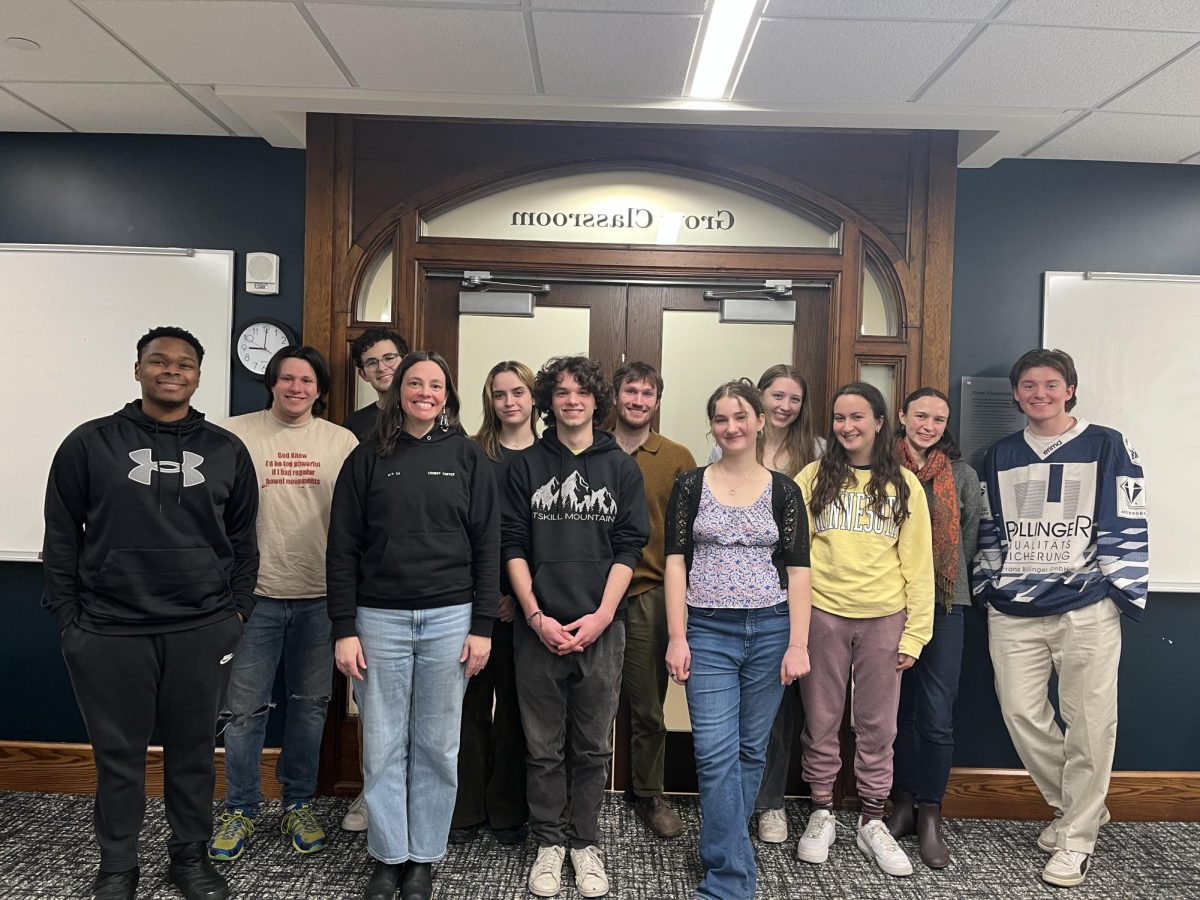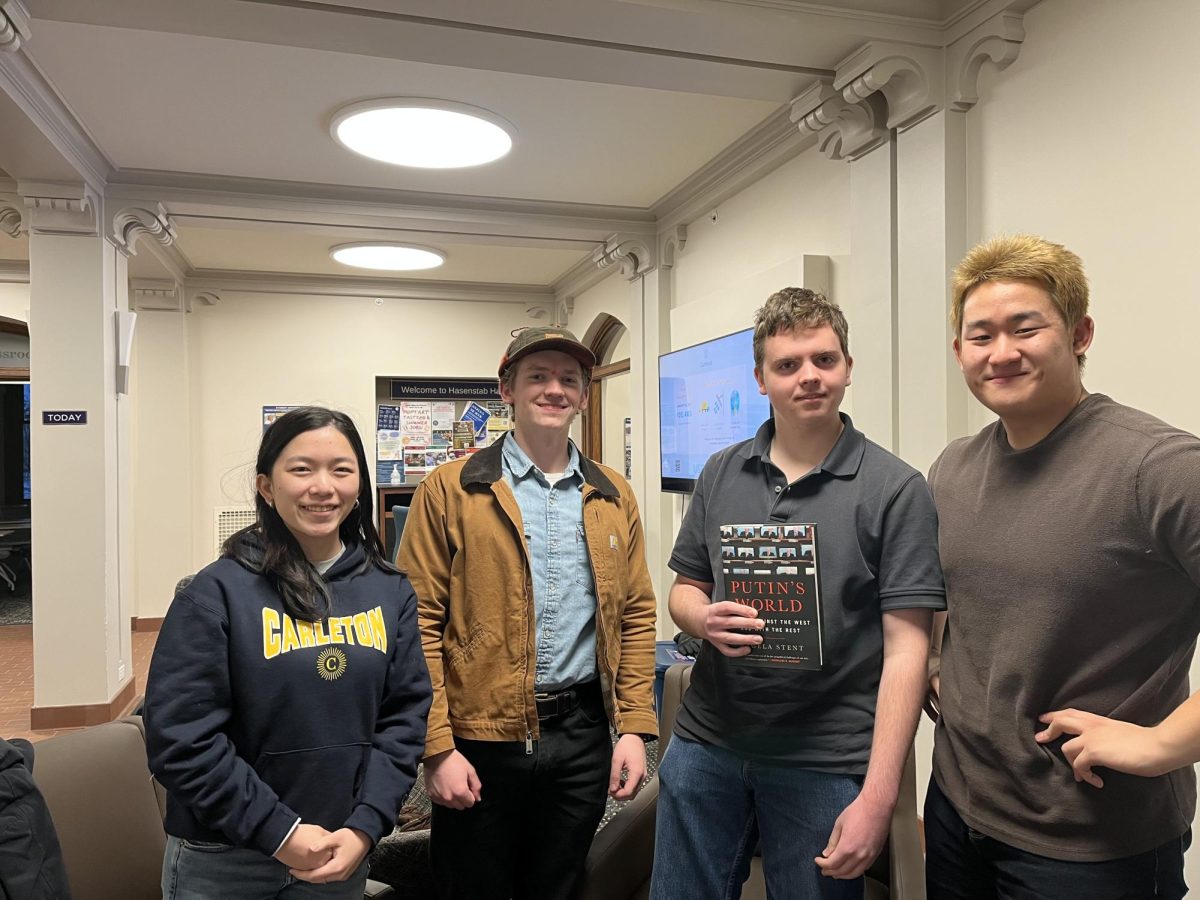Walking down the long corridor of Student Health and Counseling (SHAC), one can easily find Mr. Kenneth Hanna’s office by its distinct, soothing aroma. “My wife made the incense herself,” Hanna said. The office is always curtained, lit by dusky yellow lights, and quiet. The quiet is broken, however, as a group of young men gathers every Thursday to talk about masculinity.
Led by Kenneth Hanna and Kevin Lattu, the new Dude Talk therapy group at SHAC aims to provide a confidential space where male-identifying students can reflect and have challenging conversations about masculinity. This therapy group tries to help its participants understand their perspectives on masculinity, break the traditional expectations of masculinity and better identify and express their emotions.
Kevin Lattu, a new clinical case manager at SHAC, was formerly a therapist at the University of Colorado Boulder. While Lattu was not there for the group’s proposal, he said that “this is a group that has been on [his] mind for a long time.” He saw SHAC as a key setting for discussions about masculinity. “Conversations are being had about masculinity, gender identity and what that means on a more personal level,” Lattu said.” The counseling center is a great opportunity to have these conversations in more intimate and confidential spaces where people can go deeper.”
Lattu defined the intended audience of the therapy group as “any male-identified student at Carleton College.”
“The idea is that college-age males have a lot of media that potentially gives harmful messages about masculinity,” Lattu said. “All people are impacted by the consequences of the messages. It really is an open invitation to anybody who is wanting to reflect, to get to know themselves better, and also get to engage in a respectful conversation.”
Lattu identified emotional expression as a key goal of the therapy group. “What is important about group therapy is that it allows participants to get to know themselves better, to become more comfortable identifying and expressing their emotions, to learn how to problem solve as a group, learn how to give and receive feedback in a respectful way.”
“An all-male group impacts the kind of conversations we’re having in that it will likely be very uncomfortable,” Lattu said. “The idea of sitting, talking, identifying emotions and being vulnerable with other male-identified folk is not something that we’re taught or encouraged to do. What this group is trying is to let us be uncomfortable together.”
“Because of the nature of this particular group, group therapy is a particularly good intervention for addressing a patriarchal culture that denies us our ability to access emotions, that doesn’t allow us to receive feedback in ways that are helpful to us and those around us. Group therapy is a good way to practice some of those anti-oppressive, anti-patriarchal skills that we are hoping to cultivate,”said Lattu.
Kenneth Hanna, a therapist in his fourth year at Carleton and the primary organizer of the Dude Talk therapy group, had more to add. “The most important thing for me is for young men to understand how their perspectives were formed. Where did this idea of masculinity that they embody and carry come from? To understand where their perspective is, and that it doesn’t necessarily have to be the same perspective as everybody else.”
On how to achieve these goals, Lattu emphasized relationship and community. “Almost everything we learn about ourselves, we learn in relationships. Learn in our relationship to the bigger community and to the people around us,” he said. “This is an opportunity to learn and to reflect about ourselves, but to do so in relationships. We are creating a community in which we can learn how to be vulnerable and challenge those expectations that we can’t be vulnerable.”
An anonymous participant was interviewed to talk about his experience with the therapy group. He said, “I was surprised upon first hearing about the Dude Talk therapy group but had very positive reactions. I was like, ‘this is really cool that other people are thinking about this.’”
The student said, “I have a lot of practice talking about, specifically, emotions related to masculinity, but not so much with men. So I think I was a little apprehensive.” He went on to explain his goal for attending the therapy group: “I want to learn how to live as a man in a way that is healthy, respectful and conscious without feeling like I need to overly censor myself or tiptoe or step too lightly. I want to figure out what my ideal concept of a man in the modern day is and then try to learn to live that way.”
On the progress of the Dude Talk therapy group, the participant said, “Until now, it’s more of a discussion group. It has been especially helpful to articulate the way I think about things. It’s not that people critique what I have to say, but you can tell from their responses which parts resonated, and which parts did not. So, I think it has been helping, especially when I can draw on what someone else says and try to apply that to my own life.”
The student participant said, “Our facilitators are both really, really good examples of respectful, conscious men in the world, so it’s cool to hear their insight as well. My expectation was that we would kind of fumble around with what is masculinity, what is living respectfully as a man, what parts of masculinity are neutral or positive and which parts are things that we associate with masculinity are negative. And I think we’ve been fumbling a bit, but less clumsy than I expected. I think we’ve made some progress.”
Lattu explained that expectations of masculinity affect men’s mental health and their receptiveness to counseling. He said, “There is a real barrier of help-seeking, of being reflective, of being honest and truthful about feelings, and that takes some challenging those instilled messages such as ‘to be male is to deny feelings, be stoic, have some image of strength that includes not considering those around you.’ I think those messages are real barriers for seeking help and support when needed.”
Hanna added that “If you have this idea of masculinity that hasn’t been explored, at some point, somebody’s going to make you address it. So I admire the people that go in and get to help versus being forced on them to do it because that’s typically what happens.”
Lattu described his future plans for the Dude Talk therapy group as its first term is wrapping up. “Conversations about masculinity, about feminist theory, about gender, are happening all over campus,” he said. “My hope is that we can take what’s intellectual and turn it emotional, then take a space to experience the emotional part of these ideas. I think it’s important for me that where this group goes comes from the ground up, and that comes from group and group members and what they want to do, not a top-down, patriarchal decision-making format.”
Pushing men to question and redefine masculinity on their own terms, the Dude Talk therapy group challenges the restrictive norms while fostering a healthier, more conscious form of masculinity. As the therapy group draws to an end this term, the journey of reflection, expression and community-building has just begun for those who participated, as they get to choose what is the next step to take.












